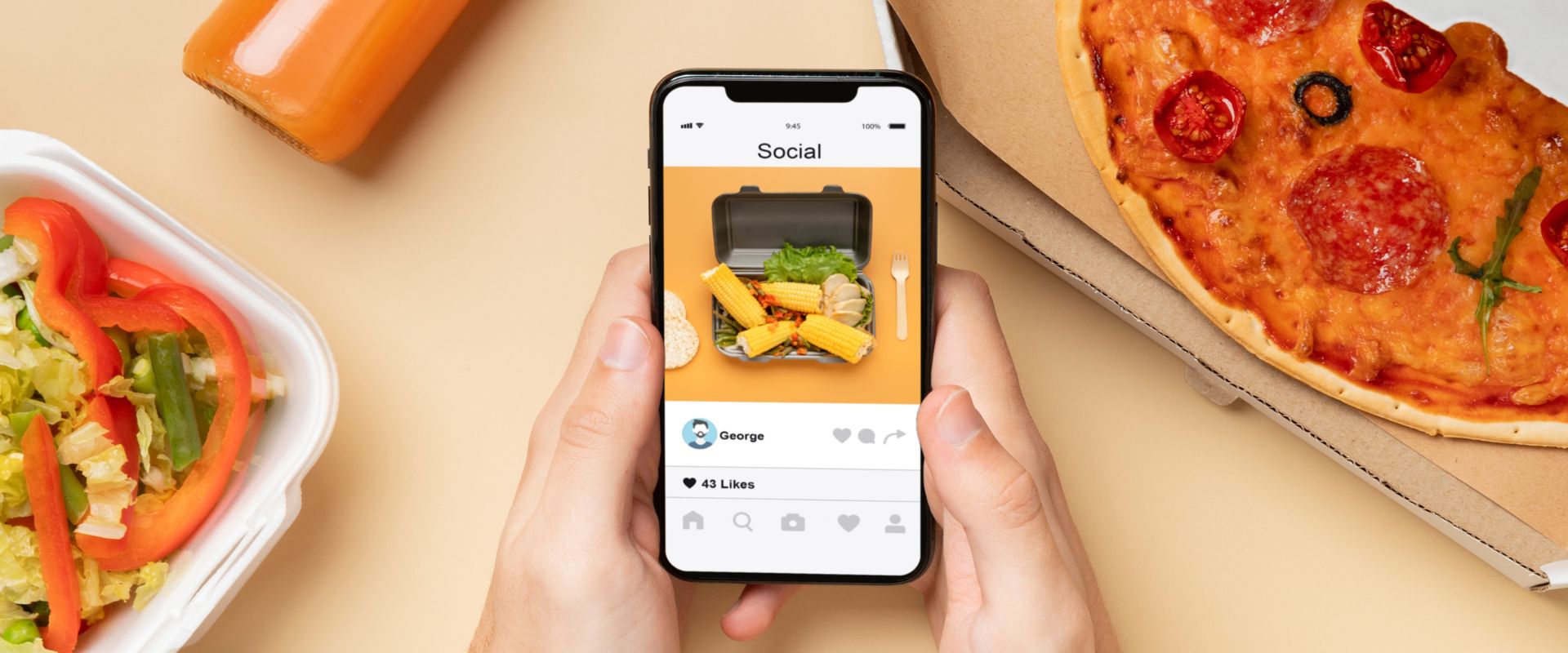Saudi Food Sector: Cloud Kitchen Business in Saudi Arabia
- Introduction
- What is Cloud Kitchen
- Saudi Cloud Kitchen Market Overview
- Advantages of Setting Up a Cloud Kitchen in Saudi Arabia
- How to Set Up Your Cloud Kitchen in Saudi Arabia
- Start Your Cloud Kitchen Business in Saudi Arabia

Introduction
The cloud kitchen business is revolutionizing the food service industry in Saudi Arabia, offering a unique blend of convenience and innovation to meet the evolving demands of consumers. As the Kingdom embraces digital transformation across various sectors, the cloud kitchen model has emerged as a key player in the Saudi food sector, driven by the growing popularity of online food delivery services. This introduction to the cloud kitchen business in Saudi Arabia explores the economic, technological, and consumer trends propelling this industry forward, highlighting its potential to reshape the culinary landscape and offer entrepreneurs and investors lucrative opportunities in a rapidly expanding market.
Read our blog to learn more about food business: Start Your Food Business in Saudi Arabia with Al Taasis
What is Cloud Kitchen?
A cloud kitchen operates from a commercial kitchen designed exclusively for preparing meals for delivery or takeaway, eliminating the need for a dine-in area. These kitchens offer restaurateurs a cost-effective way to grow their business or launch a new virtual brand. It opens up possibilities for scaling up, venturing into new markets, or experimenting with fresh concepts. Cloud kitchens serve as a testing ground for many restaurants, allowing them to use staff and resources while exploring innovative ideas efficiently.
Cloud kitchen business models vary widely, catering to different operational needs and strategic goals:
Shared Space Model: The shared space model allows restaurant operators to prepare dine-at-home meals using their own staff and ingredients within a kitchen owned by another party. This arrangement, often shared with other businesses, reduces the costs of running a traditional restaurant.
Dedicated Space Model: In the dedicated space model, a brand rents or buys a kitchen for its exclusive use. This setup enables them to explore multiple concepts from one location without the involvement of other brands.
Saudi Cloud Kitchen Market Overview
Saudi Arabia is poised for a significant expansion in cloud kitchens, fueled by the growth of its food sector and the anticipation of hosting numerous international events, attracting an influx of tourists and opening new avenues for growth. The global delivery industry is expected to hit the $154 billion milestone by next year, largely driven by the surge in on-demand food services.
The cloud kitchen market in Saudi Arabia, valued at $157.0 million in 2020, is projected to reach $335.7 million by 2030, growing at a CAGR of 7.7% from 2021 to 2030. The market is segmented by type into independent kitchens, commissary/shared kitchens, and kitchen pods. Product type includes offerings such as burgers/sandwiches, pizza/pasta, chicken, seafood, and Mexican/Asian food, among others. Additionally, the market is classified by nature into franchised and standalone operations.
| Market Segmentation | Details |
|---|---|
| Kitchen Type |
|
| Product Type |
|
| Nature |
|
Advantages of Setting Up a Cloud Kitchen in Saudi Arabia
Launching a business
is faster and more cost-effective with virtual customer interactions. This approach significantly reduces equipment costs and legal paperwork and allows entrepreneurs to begin sales almost immediately. It also offers the chance to pilot a product before investing in a food truck or a physical restaurant. Cloud kitchens provide several advantages:Flexibility in Menu Changes: Operating online allows for easy menu adjustments in response to fluctuating ingredient prices or availability without the need to update physical signage or printed menus.
Reduced Financial Burden: Ghost kitchens cut out many of the costly aspects of traditional restaurants, such as decor, signage, dinnerware, and the need for a large staff, including servers and hosts.
Room for Experimentation: They offer a low-risk environment for trying new food concepts, allowing for quick discontinuation of ideas that don’t resonate, with minimal financial loss.
Operational Efficiency: Cloud kitchens are designed for delivery, enabling more streamlined operations. Running multiple brands from a single kitchen allows for batching ingredients across different menus, enhancing efficiency.
Direct Access to Customer Insights: The digital nature of cloud kitchens facilitates direct engagement with customers throughout their journey, from discovery to order fulfilment. This access to customer data aids in refining processes, menu offerings, and staff scheduling based on consumer behaviour.
Marketing through Third-party Apps: Virtual brands can quickly gain visibility through delivery apps, bypassing the need for extensive independent marketing efforts.
How to Set Up Your Cloud Kitchen in Saudi Arabia
Starting a cloud kitchen in Saudi Arabia is an excellent business opportunity as the Kingdom’s food delivery market is rapidly growing. Remember, the key to success in the food delivery industry is great food, service, and a strong online presence.
Here’s a simple guide to setting up your cloud kitchen in Saudi Arabia.
Understand the Market: Begin by researching the local food market. Identify popular cuisines, target demographics, and delivery areas with high demand but low service. This will help you tailor your menu and services.
Develop a Business Plan: Craft a comprehensive business plan that outlines your business model, menu, pricing strategy, and marketing plan. Consider how you will differentiate your cloud kitchen from competitors.
Obtain Necessary Licenses: In Saudi Arabia, you must secure several licenses to operate a cloud kitchen. Al Taasis can help you get through the licensing process smoothly. This includes a MISA license, commercial registration from the Ministry of Commerce, a municipality license, and a food safety license from the Saudi Food and Drug Authority (SFDA). Ensure you comply with all local regulations and standards.
Find a Location: Select a location based on your target delivery areas. Consider industrial or peripheral areas with lower rents since customer footfall is irrelevant for a cloud kitchen.
Kitchen Layout and Equipment: Design your kitchen for efficiency and safety. Invest in high-quality kitchen equipment and technology that can streamline your operations, such as an order management system.
Adopt a POS System: Choose a Point of Sale (POS) system that integrates with online ordering platforms. It will help manage orders from various sources efficiently.
Partner with Delivery Platforms: Register your cloud kitchen with popular food delivery platforms in Saudi Arabia, like HungerStation, Careem NOW, and Jahez. You can also consider building your own app for direct orders.
Develop a Strong Brand: Create a memorable brand name and logo. Your branding should reflect your kitchen’s cuisine and values.
Leverage Social Media: Use social media platforms to market your cloud kitchen. Share high-quality photos of your dishes, special offers, and customer reviews to attract more customers.
Focus on Customer Service: Excellent customer service can set your cloud kitchen apart. Ensure timely deliveries and respond promptly to customer feedback.
Start Your Cloud Kitchen Business in Saudi Arabia with Al Taasis
Starting a cloud kitchen in Saudi Arabia involves careful planning and compliance with local regulations. By focusing on efficient operations, technology integration, and effective marketing, you can establish a successful cloud kitchen that caters to the country’s growing demand for food delivery services.
Al Taasis provides crucial support in the initial licensing processes required to set up a cloud kitchen in Saudi Arabia and offers ongoing assistance with regulatory compliance. Our deep understanding of the local business environment helps you obtain all necessary commercial, food safety, and municipal licenses. After your cloud kitchen is up and running, Al Taasis offers invaluable support by ensuring your business complies with evolving regulations. Al Taasis allows you to focus on your cloud kitchen’s operational and growth aspects, ensuring your business operates smoothly and legally.
Contact us to know more about the prerequisites of your business journey.
Subscribe to Our Newsletter!
Enter your email to receive our monthly newsletter.





